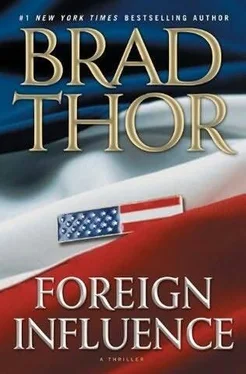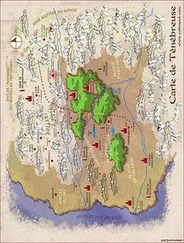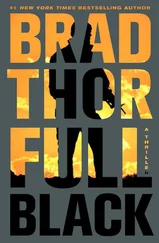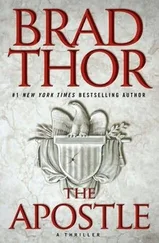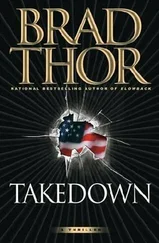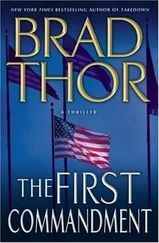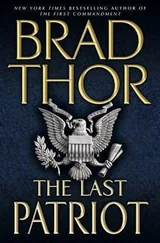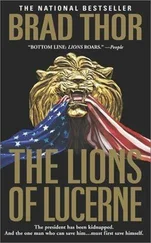For Tracy, some days she couldn’t tell what was worse, the physical pain from the attack, or the emotional pain from watching one of the most decent men she had ever known forgo the family he desired in order to stay by her side.
His father had also been a Navy man-a SEAL and then a SEAL instructor. When he died, father and son were barely on speaking terms. Harvath had forgone college for a career as an amateur athlete, something the elder Harvath had zealously disapproved of.
After his father’s death in a training accident, Harvath had found it impossible to return to competitive sports. Worried about what might become of him without any sense of purpose and direction in his life, Harvath’s mother had encouraged him to enroll in college.
He graduated from the University of Southern California in three years cum laude with a double major in political science and military history. By the time he finished, he knew exactly what he wanted to do.
Following in his father’s footsteps, he joined the Navy and was eventually accepted to Basic Underwater Demolition SEAL school (BUD/S) and a specialized program known as SQT or SEAL Qualification Training. Though the process was grueling beyond measure, his mental and physical conditioning as a world-class athlete, his stubborn refusal to ever give up on anything, and the belief that he had finally found his true calling in life propelled him forward and earned him the honor of being counted as one of the world’s most elite warriors-a U.S. Navy SEAL.
He served with SEAL Team Two and then Team Six, where he assisted a presidential security detail and caught the eye of the Secret Service. Wanting to bolster their anti-terrorism expertise at the White House, they eventually succeeded in wooing him away from the Navy and up to D.C. Harvath soon distinguished himself even further and after a short time was recommended for an above-top-secret program at the Department of Homeland Security called the Apex Project.
The project’s raison d’être was to level the playing field against America ’s enemies. The belief was that if the terrorists weren’t playing by any rules, then neither should the United States, especially when it came to defending its citizens and interests at home and abroad.
But with a new administration had come a new approach to dealing with terrorism, and the Apex Project was dismantled. Harvath had found himself out of a job.
With a unique skill set and a desire to continue serving the interests of his country, he accepted a private sector position with a company specializing in intelligence gathering and highly advanced special operations training near Telluride, Colorado.
In the words of a former CIA director, Harvath knew that intelligence was at the nexus of every major security challenge facing the United States. It didn’t matter if it was al-Qaeda or Hugo Chavez, the need for timely, accurate, comprehensive information was unprecedented.
Harvath and the former CIA director weren’t the only people to recognize that the drive for quality intelligence was paramount in the post-9/11 world. A well-funded group of high-level former military and intelligence operatives had seen the need as well. Deeply concerned with the entrenched bureaucracy at the CIA and the political hobbling of the nation’s defense apparatus, they sought to create an organization that would boldly do what the country’s politically correct, vote-chasing politicians and constantly-covering-their-cowering-asses bureaucrats were too timid and too inept to attempt.
Named after its founder, Reed Carlton-a retired thirty-year veteran of the CIA and one of the nation’s most revered spymasters-the Carlton Group was based upon the Office of Strategic Services, or OSS, the wartime intelligence agency that had been the predecessor to the CIA. The Carlton Group was composed of patriots who wanted one thing and one thing only: to keep Americans safe no matter what the cost.
Its modus operandi was quite similar to that of the Apex Project, except for one thing-it didn’t fall under the auspices of any politicians or bureaucrats. The Carlton Group was an obscure, private organization funded completely from Department of Defense black budgets. Only a handful of high-level career military DOD personnel knew of its existence, and it represented a major shift in counterterrorism’s center of gravity. The only thing it was missing was a reliable private intelligence branch. To use existing government intelligence apparatus like DOD, DIA, NSA, or CIA risked exposure and was out of the question. Therefore, they had to seek something in the private sector.
When the Carlton Group purchased the company Harvath had been working for in Colorado, he received a phone call. The new powers that be were restructuring and they wanted to move Harvath out of simply gathering intelligence and building human networks and into something much more interesting.
Carlton, or the “Old Man” as he was affectionately known by those who worked for him, had personally invited Harvath to his home in northern Virginia to discuss a new position. He had assembled a small group of operatives with military and intelligence experience to carry out “immediate action” assignments. Using the popular Pentagon catch-phrase, “Find, fix, finish, and follow up,” he explained that Harvath would be responsible for identifying terrorist leadership, tracking them to a specific location, capturing or killing them as necessary, and using the information gleaned from the assignment to plan the next operation. The goal was to apply constant pressure to terrorist networks and pound them so hard and so relentlessly that they were permanently rocked back on their heels, if not ground into the dust.
In addition to immediate-action assignments, Carlton planned clever psychological operations to eat away at the terrorist networks from within, sowing doubt, fear, distrust, and paranoia throughout their ranks like a cancer. It was everything the United States government should have been doing, but wasn’t.
Serving under a man like Carlton was an honor in and of itself. The scope and intensity of the operations were icing on the cake. Harvath was sold.
For twelve months, the Old Man had put him through the most comprehensive intelligence training he had ever experienced. In essence, Carlton distilled what he had learned over his thirty years in the espionage world and drilled it as deeply as possible into Harvath.
On top of the intelligence training, Harvath was required to keep his counterterrorism skills sharp. He took additional courses in Israeli hand-to-hand combatives and the Russian martial art known as Systema. There were driving classes, language classes, and tens of thousands of rounds of ammunition fired on the range and in shoot houses with a host of high-end private instructors.
He made excellent progress and, despite his recent milestone birthday, felt that he was in better shape and better equipped than he had ever been before. Even so, he’d recently begun to notice that it was taking him slightly longer to bounce back from injuries. The job was a dream come true, but he knew he couldn’t keep doing it forever. At some point, maybe ten years from now, maybe fifteen, things were going to change. He couldn’t spend the rest of his life kicking in doors and shooting bad guys in the head.
Carlton had been ready to put Harvath in the field, but before he could begin, Harvath had asked for permission to conduct the Iraq operation. The Old Man had agreed and through the DOD had greased Harvath’s passage into Iraq, seeing to it that he had everything he needed.
With the Iraq operation complete, the Old Man had given him a couple of days off before the real work was to begin. He had suggested time with Tracy. Harvath had told him he’d think about it.
Читать дальше
